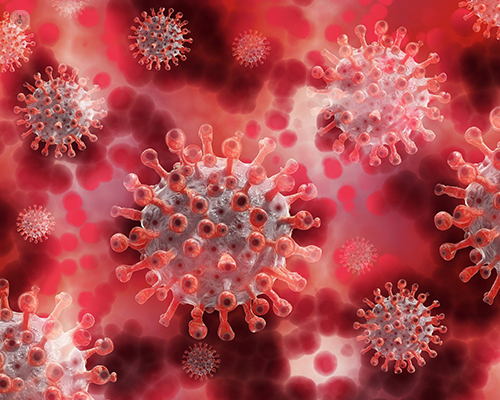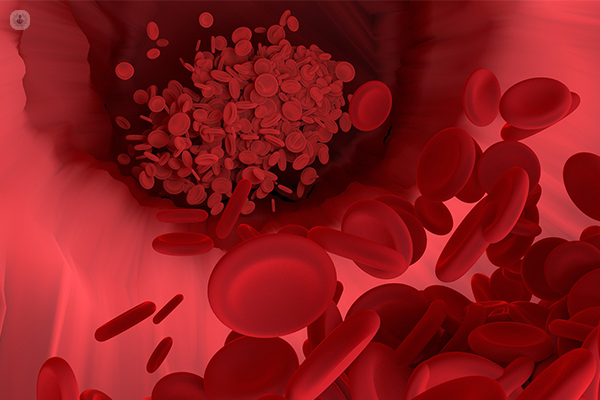Top safety tips for vascular patients: COVID-19 is a deadly vascular disease
Written by:Most of us understand the coronavirus COVID-19 as a respiratory infection that attacks the lungs and airways. Many recent studies, however, have hypothesised that COVID-19 is actually primarily a vascular disease and not just a pulmonary infection like previously thought.

Around 10-12% of the general population in the UK suffer from different types of vascular disease, putting them at high risk of experiencing severe COVID-19 complications.
In this article, Mr Asad Rahi, a leading consultant vascular and endovascular surgeon in Greater Manchester, explains how COVID-19 is affecting vascular disease patients and how they can safeguard against the virus.
Can COVID-19 be defined as a vascular disease?
Yes, there is good evidence that COVID-19 is also a vascular disease. It affects all the blood vessels in the body, causing head-to-toe vascular involvement. The virus attacks the lining of the blood vessel in every organ in the body, which is why is it also being considered a deadly vascular disease.
How does COVID-19 affect vascular disease patients?
There are five main groups of vascular disease patients, who may suffer from the following:
- Poor circulation in the legs, which includes conditions such as peripheral artery disease, diabetes and obesity.
- Carotid artery disease affects arteries that supply blood to the brain and can cause TIA, Mini-stroke and major stroke.
- Aortic aneurysms, which can cause dilatation of the aorta in the chest or abdomen.
- Varicose veins and other venous conditions.
- Clots in the legs (deep vein thrombosis) and clots in the lungs (pulmonary aneurysm).
These groups of patients are at high risk because the virus causes what we call a COVID thrombosis/clot in both the microvascular and macrovascular system, affecting both small and larger arteries. When it attacks the lining of the blood vessels, there is inflammation and leakage of fluid which results in clotting.

The main organs the coronavirus affects are the lungs, heart, brain, kidneys and blood circulation in the legs. Of course, it starts off affecting the respiratory system as we already know, but later it can go on to affect the blood circulation, attacking the lining of the blood vessels.
How often does COVID-19 cause blood clots?
According to the developing literature, there is good evidence that up to 30% of the patients with severe COVID-19 go on to develop blood clots. These blood clots primarily happen in the capillaries/small arteries in the lungs, heart arteries, kidney arteries and in brain circulation and leg circulation.
There is ongoing research showing that COVID-19 affects more patients over the age of 50, but certainly, more research is needed for earlier age groups.
Should patients with vascular issues be more cautious about COVID-19?
Yes, definitely. They need to take all the precautions, something we are all expected to do, which includes social distancing, wearing masks, maintaining excellent hand hygiene and being aware of everyone's underlying medical conditions. These measures are particularly important for vascular patients.
Most vascular patients have underlying health conditions, which may be in the form of:
- Ischaemic heart disease
- High blood pressure (hypertension)
- Diabetes
- High cholesterol
- Problems from excess body weight and smoking
What advice can you offer for patients with pre-existing vascular issues?
- Most vascular patients have underlying medical conditions, so they should continue their medication for blood pressure, control their diabetes, be aware of their cholesterol levels and try to give up smoking.
- Regular exercise is extremely vital for vascular patients. Regular daily exercise for at least 30 minutes a day is considered extremely useful.
- Most vascular patients are usually recommended to take baby aspirin (75 milligram) or similar antiplatelet medication, along with statins and cardiac and diabetic medications. This should help them to minimise the chances of developing blood clots if they do acquire a coronavirus infection.
- Regular blood pressure monitoring and regulation of optimum body weight can help to reduce their risk.
- Vascular patients should stay in touch with their doctors regularly.
- They should seek early advice from a vascular specialist, which is now possible over the phone and via video consultation.
- All vascular patients should receive full vaccination cover. COVID-19 is likely to stay with us long-term, so regular, updated booster jabs should be considered mandatory when they become available. It is now being recommended that if in the future, vascular patients require any vascular intervention or operation, they be vaccinated before to reduce COVID-19 complications.
If you are a vascular disease patient or a high-risk patient for other reasons, and you need a COVID-19 vaccine, you should talk to your doctor right away. It is important to have your vaccine when you are offered it to reduce your chances of getting COVID-19 and to help reduce infection rates in your community.
If you worried about your vascular health and would like to speak to a leading consultant vascular and endovascular surgeon, head to Mr Asad Rahi's Top Doctors profile and book an appointment.


